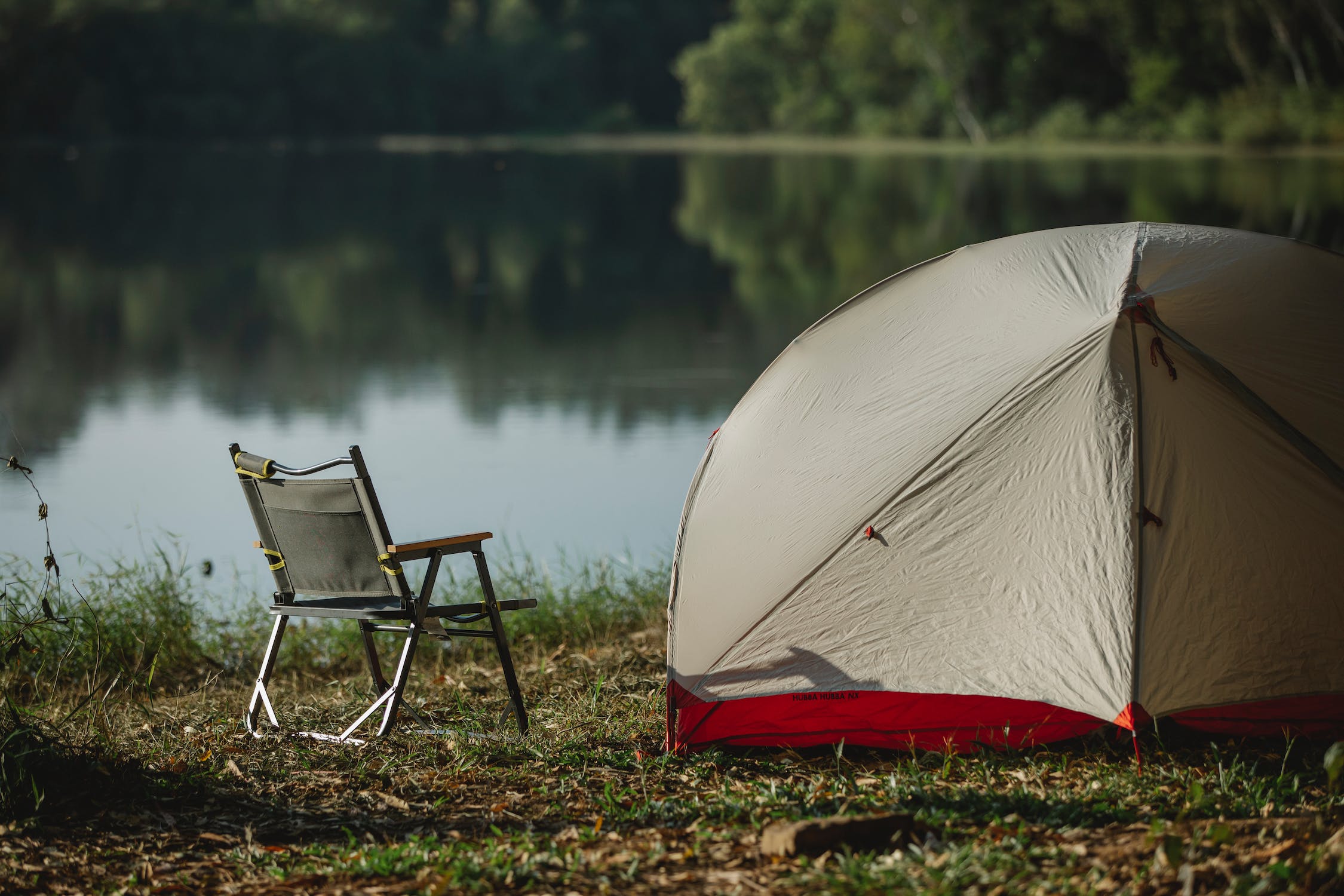Choosing the ideal location for tent camping is essential to enjoying a fun and relaxing outdoor experience.
Whether you’re a seasoned camper or brand-new to the activity, choosing the ideal campground can have a significant impact on how happy you end up being.
Several elements, such as campground size, seclusion, amenities, etc., should be taken into account when you decide to go tent camping.
You can make the most of your camping trip by considering these factors and doing a little research to identify the best spot for your tent.

Can You Camp in a Tent in Florida?
Yes, it is feasible to go tent camping in Florida. There are several places to camp in Florida, including state parks, national parks, national forests, and private campgrounds that allow tent camping.
Florida offers some unique camping experiences thanks to its different natural settings, which include coastal regions, woods, and freshwater springs.
However, as you may know, it’s crucial to consider the environment and weather when camping in Florida. Because again, Florida weather!
The weather here can be hot and muggy, especially in the summer. Mosquitoes and every other insect in the world seem to love the Sunshine State.
Therefore, we recommend wearing proper clothing and bug repellant.
Are you ready to go tent camping?
Whether you want to choose a campsite in Florida or any other place, here are some things to remember before heading out camping.

Things to Consider When Choosing a Site for Tent Camping
1. How Can You Sleep Comfortably in a Tent?
The main difference between getting a decent night’s sleep and waking up with a bad headache or extremely tired is finding an even terrain to place your tent and avoid any rocky areas.
Paying attention to the small details when searching for an ideal camping location will make tent camping more comfortable and will also allow you to get good sleep.
Furthermore, this can greatly improve your whole camping experience.
2. Do Camping Tents Leak or Get Wet Inside?
If you’re traveling in a van or a hammock, this may not be as crucial, but if you’re cowboy camping or tent camping, drainage is something you should pay close attention to.
Is the ground descending to your campsite? If it starts to rain in the middle of the night, the last thing you’ll want to do is to get out of your warm, comfortable sleeping bag and move your tent to avoid flooding.
Not to mention, this can be somewhat difficult to do when you’re on a tent pad. If rain is forecast, you might want to consider digging a canal or moat away from your tent.

3. Choose Your Door Orientation
Regardless of the type of shelter you have, it makes sense to think about the direction in which your doors face. Especially, if you’re in a campsite with other campers.
It may be a good idea to make an effort to turn the door away from other campers’ campsites when we are in our campervan or we tend to look for solitude under a tree.
This also allows easy access if you need to use the restroom in the middle of the night.
4. Take Advantage of Shade and Sun
When you’re tent camping, you should always pay attention to where the sun will rise during the shoulder seasons and attempt to orient your tent to get hit by the light as early as possible to assist in keeping you warm in the morning.
On the contrary, search for more trees and rock outcroppings when camping during the height of summer to receive shade and shadows from the sun.

5. Trust the Trees
Trees provide wind and sun protection for you, the latter of which is essential during the hot summer months. And one of the best things about trees is that they are always compatible with tarps!
For protection against wildlife, you can hang food from their branches. A tree provides nature’s equivalent of a steam vent, thus sleeping there will result in less condensation in your tent than in the middle of a field.

6. Beware of Sharp Objects
Before putting up your tent, remove any sharp objects (rocks, pinecones, etc.) from the area beneath the footprint to reduce the possibility of pain or punctures to sleep pads.
7. Dont Forget: Leave No Trace (always)
To preserve the outdoors, make as little influence as possible. There’s a saying that we love that goes like this: “Take nothing but pictures, leave nothing but footprints“.
When possible, use an existing campsite, and at the very least, camp on a sturdy surface rather than in delicate places.
Please remember to pick up after yourself, refrain from cutting the grass, and leave whatever you find. This applies to every time you’re enjoying the outdoors, not just tent camping.

8. Is It Safe to Camp in a Tent?
Yes, sleeping in a tent is generally safe. And although camping is undoubtedly riskier than remaining at home, if you’re well prepared there’s not much to worry about.
Be mindful of your surroundings and take precautions to keep yourself safe from wild animals, other campers, inclement weather, and fire.
In addition, it’s essential to pick a suitable campsite with appropriate safety measures and well-maintained amenities if you want to have a safe camping experience.
Follow your tent’s instructions when setting up your tent, and make sure to use the right stakes and anchoring techniques for stability.

It’s also helpful to always keep an extra set of stakes in your car. We can tell you from experience that those little things appear to have a life of their own and run away often!
Rule of thumb: always stay vigilant of your surroundings when you’re out tent camping and be aware of any potential dangers. Keep your campsite tidy to prevent luring wildlife, and correctly dispose of garbage.
Additionally, be careful around campfires and make sure to put out fires completely before you leave.
9. What Not to Keep in a Tent
In case you didn’t know, Florida is black bear country, and campers and hikers constantly see bears around in the trails and campsites.
Just like in any other place where bears and other wild animals can be seen near the camping areas, the following items should never be stored inside your tent.

- Food. This is one of the most important things to keep out of a tent. Food can draw bears, raccoons, and other animals, which could result in wildlife interactions and tent damage.
- Fragrant Items. Since these can attract insects, fragrant items like shampoos, lotions, and perfumes should be kept outside the tent.
- Wet Clothing/Gear. Avoid storing wet gear inside the tent. This applies to damp towels, clothing, and swimsuits, which should be dried outside.
- Flammable Supplies. To avoid fire threats, flammable supplies like camping gasoline, propane tanks, and fire starters should always be kept outside the tent.
- Valuable Items. Finally, rather than keeping your valuables and expensive possessions in your tent, these are best kept securely in a locked vehicle or another secure area.
Final Thoughts
We think that selecting the ideal location for tent camping definitely needs attention to very important details that can sometimes be overlooked.
However, careful and detailed planning is a must when choosing the proper campsite.
This can improve your camping experience by offering a relaxing setting where you can explore the outdoors and make lifelong memories without any hassles.
Save it for later!


Hey, I’m Yanitza 👋 Adventure Travel & U.S. Destination Specialist, travel writer, and hidden-gem hunter with over 8 years of experience helping travelers explore deeper and travel slower. I specialize in crafting authentic, stress-free adventures from small towns to scenic hikes and scuba dives. I’m a firm believer that the best stories happen when you venture beyond tourist hotspots. When I’m not planning getaways or writing travel guides, I’ll probably be home rewatching The Vampire Diaries like it’s my job and daydreaming about future adventures in Spain.


“One thing I always check is if the campsite offers a mix of terrain – forest, lakes, and mountains – it adds so much variety to the adventure! Also, proximity to hiking trails is a huge plus.”
Thank you for sharing! Yes, checking how close the campsite is to hiking trails is a must!
Great tips for finding the perfect tent camping site! I especially liked the advice about looking for flat, dry ground with some tree coverage. Nothing worse than trying to sleep on a sloping site or waking up soaking wet from rain. Picking a site with a nice view is a great bonus too. Thanks for the helpful suggestions on things to look for when choosing where to set up camp.
Thank you for reading! We’re happy to know that you like our content.